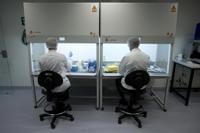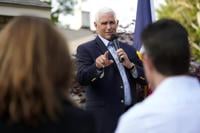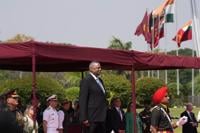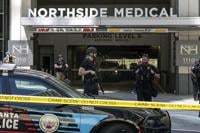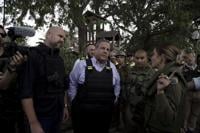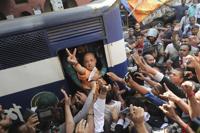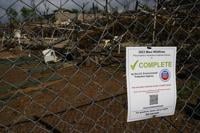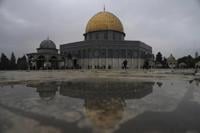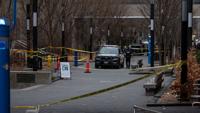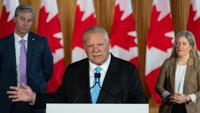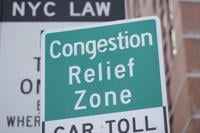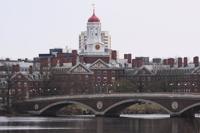THE HAGUE, Netherlands (AP) — Representatives of Ukrainian civil society and rights groups have visited an organization that uses high-tech DNA techniques to identify people who go missing in conflicts and natural disasters, a move intended to boost cooperation during the ongoing war in Ukraine.
The head of the International Commission on Missing Persons, a Hague-based group that operates a human identification facility, said Thursday that her organization faces unprecedented challenges as it seeks to collect DNA samples and evidence amid the fighting.
“I cannot think of another model whereby we’re working now actively to assist in investigations of missing persons cases while there’s an ongoing conflict," ICMP Director-General Kathryne Bomberger told The Associated Press. “So this does present a challenge.”
The people missing or unidentified following Russia’s invasion of Ukraine more than a year ago range from soldiers killed in battle to civilians killed in attacks by Russian forces. They also include children who were abducted and sent to Russia, a practice that led the International Criminal Court to issue an for Russian President Vladimir Putin and his commissioner for children's rights.
The commission is close to finalizing an agreement with the Ukrainian government that would facilitate its work to pin down the identities of people who are missing or dead by gathering DNA from bodies and cross-referencing it with samples from family members.
Such an agreement would give the organization legal clarity when working with Ukrainian families.
“In a mass grave, which is a crime scene, you want to ensure that you’re working in line with the criminal procedure code, with other domestic legislation," Bomberger said.
Experts from the commission have traveled to Ukraine to help identify the dead and opened an office in Kyiv. Their findings can give closure to families and also feed into investigations that aim to bring to justice perpetrators.
At its lab in The Hague, the commission’s technicians can extract DNA from tiny samples of bone and cross-reference them with samples provided by families of the missing.
Even the number of people missing in Ukraine dating not just back to Russia's Feb. 24, 2022, invasion but to the start of the grinding conflict in eastern Ukraine more than a decade ago is far from certain.
“The issue of how many people are missing is not entirely clear," Bomberger said. "There is information coming from the state itself, which we use as the basis of numbers, but we also recognize that the state has a need for confidentiality when it comes to the numbers of fallen soldiers who may be amongst the missing.”
Victoriia Solodukhina, who represented an organization called Nadia, which is Ukrainian for Hope, said she hopes to find out more about people missing since early in the conflict in eastern Ukraine. But she said for some family members, identification will come too late.
“We don’t even know whether somebody will look for them because their loved ones — their parents and relatives — are not here anymore,” she said.
“Time is our enemy,” she added.
Anna Popova, from Ukraine's -winning Center for Civil Liberties, was among representatives of Ukrainian civil society who visited the commission’s headquarters and hi-tech DNA labs in The Hague this week as part of moves to ensure that families of the missing are made aware of the role they can play in the process of finding and identifying their loved ones.
“In Ukraine we have an extremely high number of missing persons,” she said through an interpreter. “We need changes in legislation so families of missing persons can defend their rights.”
She said the Center for Civil Liberties, and a project it helped establish called Tribunal For Putin to gather evidence of war crimes since the invasion last year, have received nearly 1,000 requests for help tracing people who went missing or were being held captive.
The International Commission on Missing Persons was established to help identify the missing and dead from the Balkan wars of the 1990s. It has a working relationship with the prosecution office of the International Criminal Court and crime-fighting agencies like Interpol and Europol to share evidence.
Funded by voluntary contributions from governments, the missing persons commission has worked at crime scenes and disaster sites around the world, including Syria, Libya and Iraq.
Bomberger said that, so far, the commission has not directly engaged with Russian authorities about Ukraine, but says there should be contact in the future.
“When the time is right ... there will have to be a time when this happens because it’s part of building peace,” she said.
___
Follow the AP’s coverage of the war at


